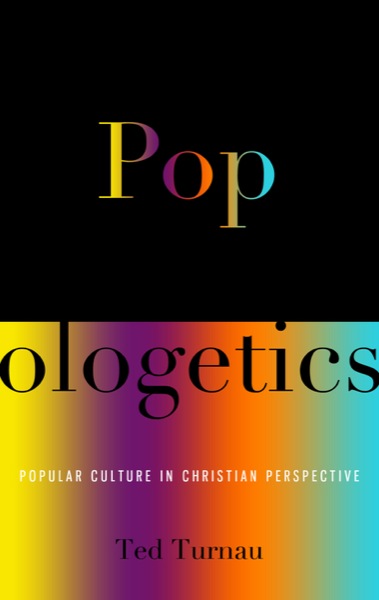
Ted Turnau
Reviewed by: Allen D. Curry
Popologetics: Popular Culture in Christian Perspective, by Ted Turnau. Published by P&R, 2012. Paperback, 368 pages, list price $19.99. Reviewed by OP minister Allen D. Curry.
There is a touch of irony in a retired grandfather reviewing a book on popular culture—especially one who needs his grandchildren to explain much of it. Ted Turnau's thesis in Popologetics is that all Christians should be ready to engage popular culture critically. Perhaps a grandfather is the ideal reader to test his thesis.
Turnau argues that "Christians who want to reach out to their non-Christian friends and neighbors need a worldview-oriented approach, an approach that deals with popular culture in all its complicated, messed up glory" (p. xvii). He provides a resource for understanding and reaching contemporary non-Christians steeped in popular culture.
The author first offers some basis or grounding for understanding pop culture. He then proceeds to analyze some opposing approaches to the subject. He concludes with a workshop designed to provide tools to grasp and engage popular culture.
Turnau contends that one cannot live in contemporary society and avoid the influences of pop culture. It is pervasive and represents a worldview that clearly does not conform to a Christian view of the world.
Culture, including popular culture, should be understood "in terms of three categories of creation, fall, and redemption" (p. 44). Turnau explains how theological concepts like general revelation, the image of God, and common grace play a role in a Christian understanding of culture. The author does a good job of introducing how a social scientist integrates the Christian religion into an analysis of a contemporary worldview.
In presenting his disagreements with those who take a different view of pop culture, Turnau sees much more positive in it than I do. For example, in addressing those who uncritically embrace pop culture, Turnau cautions about its idolatrous character. Yet he encourages more than a cautious look at what the unbelieving world adopts. I wish he had examined how the Bible not only condemns idolatry but also warns against any engagement with it. In my mind, he must do more with Deuteronomy 13 than suggest that words as well as images can lead one astray. I grant it is difficult to critically engage while ignorant. Yet I fear the consequences of the type of appreciation for modern culture that Turnau encourages. I wish he had shown the same kind of insightful sensitivity he did in treating the question of holiness and the temptations to sin that are prevalent in pop culture.
The book ends with a series of examples of how to apply the material in it. Although he uses concrete examples to show how to implement his approach, I fear some readers will be unfamiliar with his examples.
Turnau does a good job of critically examining pop culture for those who are unaware or even antagonistic to it. I benefited from his analysis and critique. Yet I am not ready to embrace it in the same way he does. If he wants to change the mind of this grandfather, he should address the role of Christian liberty in appreciating different cultural expressions.
October 19, 2025
October 05, 2025
Raising Sexually Faithful Kids and
Parenting Boys and Girls in a Gender-Confused World
September 28, 2025
Calvin’s Ecclesiology: A Study in the History of Doctrine
September 21, 2025
September 14, 2025
The (Not-So-Secret) Secret to Reaching the Next Generation
September 07, 2025
August 31, 2025
© 2025 The Orthodox Presbyterian Church